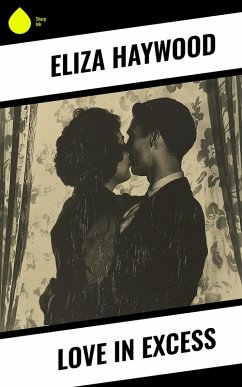Eliza Haywood's "Love in Excess" is a captivating exploration of the tumultuous nature of passion and desire, set against the backdrop of early 18th-century England. The novel, which is crafted in the style of sentimental fiction, intricately weaves together elements of romance and moral commentary, reflecting the complex interplay of love and social expectations. Through a rich tapestry of vivid characters and emotional turmoil, Haywood delves into the consequences of unbridled affection and the perilous heights to which it can elevate or destine one to ruin. Her nuanced prose and engaging dialogue exemplify her innovative contribution to the emerging field of women's literature during the Enlightenment, where the exploration of female agency and experience was beginning to take root. Eliza Haywood (1693-1756) was a prolific writer whose works span various genres, including plays and periodicals. Growing from a background marked by personal trials and challenges, Haywood turned to writing as a means of livelihood and expression. Her insightful confrontation of societal norms regarding gender and romantic relationships in "Love in Excess" reflects her own experiences and the prevailing cultural discourse of her time, making her a critical voice in the landscape of early feminist literature. This novel is highly recommended for readers interested in the evolution of romantic literature and the representation of women's voices in the 18th century. Haywood's work not only entertains but also invites readers to critically engage with themes of love, morality, and the indomitable human spirit, making it a timeless addition to any literary collection.
Dieser Download kann aus rechtlichen Gründen nur mit Rechnungsadresse in A, B, BG, CY, CZ, D, DK, EW, E, FIN, F, GR, HR, H, IRL, I, LT, L, LR, M, NL, PL, P, R, S, SLO, SK ausgeliefert werden.









